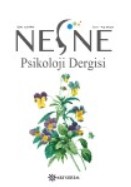The Relationship Between Digital Game Addiction, Executive Functions and Impulsivity in Early Adolescents
The Relationship Between Digital Game Addiction, Executive Functions and Impulsivity in Early Adolescents
Author(s): Tuğba Bozyiğit, Selin YılmazSubject(s): Media studies, Cognitive Psychology, Developmental Psychology, Behaviorism, Substance abuse and addiction, ICT Information and Communications Technologies
Published by: Sanat ve Dil Araştırmaları Enstitüsü
Keywords: Video game addiction; attention; impulse control; cognitive flexibility; early adolescence;
Summary/Abstract: The current study was largely concerned with the association between digital game addiction, specific cognitive functions especially, three components of executive function (inhibition, set shifting and working memory) and impulsivity in early adolescents. Sampling consisted of 6th (55.1%) and 7th (44.9%) grade middle school students (36 females and 62 males). The mean age of the students was determined as 12.35 years (SD =0.75; age range, 10–14 years). Digital game addiction, inhibition, set shifting, working memory, and impulsivity were evaluated via Digital Game Addiction Scale (DGAS), Stroop Test TBAG Form, Trail Making Test (TMT), Wechsler Memory Scale-III Letter-Number Sequencing Subtest (WMS–III/LNS) and Short Form of Barratt Impulsiveness Scale (BIS- 11-SF), respectively. According to the correlation analysis results, selective and complex attention, inhibition, set shifting, and impulse control were diminished with increasing digital game addiction. There is no significant relationship between digital game addiction and working memory. Consistent with the correlation analysis, structural equation model results revealed that digital game addiction significantly predicts inhibition, set shifting and impulsivity [x2 (15, N = 98) = 7.476, p > 0.5; x2/df = 1.246; RMSEA = .05; CFI = .95; GFI = .97]. As a results, it can be concluded that digital game addiction should be controlled in order to manage impulses and develop high-capacity cognitive skills in children.
Journal: Nesne-Psikoloji Dergisi
- Issue Year: 11/2023
- Issue No: 28
- Page Range: 188-198
- Page Count: 11
- Language: English

